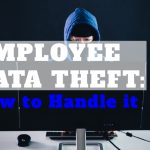12 Common Reasons Why Your Data Gets Lost
Have you accidentally deleted an important work file or maybe even lost your precious vacation pictures from this past year with your family? These unfortunate events can be devastating, and we have all experienced the feeling of dread that comes along with losing a file. The loss of data is not usually the result of external attacks. All it takes is one negligent employee’s activity or a simple technical failure to wipe out all your essential data.
To choose a recovery method, you must understand how and why data is lost.
Common Reasons for Data Loss
Here are some common reasons for data loss.
- Hardware Failure
Hardware failures can lead to data loss in many ways. A hard drive crash is the most common type of hardware failure, but other types can also result in data loss. For example, a power surge or lightning strike could damage your computer’s motherboard or circuit board. If your computer doesn’t have a surge protector, it could be damaged by a power outage or brownout (a voltage drop). It’s also possible that a virus or other malware could damage your computer’s operating system or corrupt files on any attached storage devices, such as USB drives. - Software Corruption
The operating system’s or applications’ corruption can cause file system damage and lost data. This is often a result of bugs or viruses that corrupt your data files. These bugs are typically found in software programs or drivers used to run your computer’s hardware. - User Error
User error is another prevalent type of data loss, especially among home users who don’t understand computers very well. Education and training are the best ways to prevent this data loss. If you have a friend who doesn’t know much about computers but wants to learn, get involved in backing up their important files so they understand why it is essential for them to do so. - Malicious Action
If you have sensitive company or personal information stored on your computer, you must ensure that no one else has access to your machine. Unfortunately, this isn’t always possible. If you’re not careful, someone could hack into your device and delete files without you knowing about it until it’s too late. This is especially true if you use public Wi-Fi hotspots and don’t protect yourself with a VPN (Virtual Private Network). A hacker could quickly gain access to your computer and steal any sensitive information. - Overwriting Data
For the computer to store information, it needs a way to write on the hard drive and keep track of where everything is located so it knows where to find it later. When you delete files, they aren’t erased from the disk until you overwrite them with new data. If you don’t overwrite them with new data, they remain on the disk until they’re overwritten by something else — which could be years later! If someone gets their hands on your computer when there’s still old data on the disk waiting to be overwritten, they could recover that old information in some instances. - Accidental Deletion
Accidentally deletion occurs when people try to remove files from their computers but delete them by mistake. This often happens when trying to remove malware or other unwanted programs that have infected their computer systems. Even if they think they’ve deleted all traces of the infection, they might be mistaken; certain types of malware are designed to hide until they cause further damage to your system.

- Hacker Attacks and Data Theft
Data thieves use sophisticated techniques to get their hands on information they can sell or use themselves. This includes using malware to infiltrate your system, stealing passwords and other login credentials, or gaining access by posing as an employee or contractor. These attacks can cause significant damage, so you must take steps to secure your data and protect against them as much as possible. - Viruses and Malware
Viruses and other malicious software (malware) can completely corrupt or delete your files. Viruses can also infect your computer’s operating system, leading to other problems. Contact a professional immediately if you suspect your device has been infected with a virus or other malicious software.
Protected Harbor can protect your business from infection from ransomware, viruses, useless subscriptions, phishing attacks, and end-user problems, making your IT as strong as Protected Harbor does your business. - Accidents Involving Fires and Explosions
Explosions are uncommon, but fire will almost certainly utterly destroy your computer and any data stored on it. The backups kept in the same residence are likewise at risk from fire. For example, having weekly backups on an external hard drive held in the same building won’t assist much if the building burns down. The computer and the backup disc will be destroyed in this instance, and all data will be lost. Making regular backups and keeping them in other (different) locations is the safest strategy against fire. - Power Failures
A sudden power outage could cause your computer to lose data if it was writing an update when the power went out. This can be especially problematic if you’re storing all your data on one drive because there will be no duplicate copies stored elsewhere. Other causes include faulty batteries or power surges that cause damage to hardware components. - Memory Corruption
A bug in your code causes an unexpected result that might corrupt memory, leading to problems with reading or writing data stored in memory. - Liquid Damage
Water or any other liquid getting into your computer or digital device can cause permanent damage and make it impossible for you to re-access your files. For example, most hard drives will not be able to read the information on a damaged platter, even if the rest of the campaign is still working fine. If you spill water on your laptop while it’s running, there’s a good chance you’ll lose all of your data because moisture can cause corrosion inside your laptop’s internal components.
Final Words
As it turns out, data loss can happen in several ways, but there are steps you can take to minimize the chance of this happening to you. It’s always important to make regular backups of your information—never keep all your eggs in one basket. Also, remember to secure sensitive information correctly especially if you’re dealing with sensitive data.
Protected Harbor enables you to store data in multiple locations and ensure that your data is safe in case any location is affected by a critical disaster. It also keeps your data protected by monitoring and securing it from viruses and other malicious software. This solution also enables you to set up a disaster recovery plan so that your business does not incur any loss of data.
Above, we have listed the most common reasons as to how and why you can lose your data; you need to be proactive and take the proper measures to secure your data. Consider partnering with a data expert like Protected Harbor. We understand that data is important; that’s why we help you keep it safe.
Get free data penetration testing, including hardware check, and Protected Harbor today.






